1989 - 1991
Teodor Shanin, at the time a sociology professor at the University of Manchester, organises three-month sociological field schools in England (Manchester and Kent) and invites young academics from Russia to participate. There, Teodor meets Vadim Radaev, Vadim Volkov, Oleg Kharkhordin, Gennady Batygin, Alexander Philippov, and Alexander Kryshtanovsky. These young scholars would later be advancing sociology in the new Russia.1993 - 1994
Teodor Shanin often said that University is not just faculties, teachers, and students. Library and science should be the core of any university.In collaboration with his friends, prominent academics, Teodor Shanin establishes the “InterCentre” research centre (stands for the Interdisciplinary Academic Centre for Social Sciences). Teodor Shanin and Tatyana Zaslavskaya became the co-presidents of the InterCentre.
The research centre had two departments: the first one was studying the social structure of Russian society. It was headed by Tatyana Ivanovna Zaslavskaya. The second department was called the Centre for Peasant Studies and Agricultural Reforms and it was headed by Viktor Petrovich Danilov.
InterCentre starts to regularly hold interdisciplinary seminars and invite key academics from various fields as well as novice researchers to participate. For example, the seminars were attended by Yuri Levada, who would give a talk on what a regular Soviet person was like, Andrey Klepach, and Andrey Belousov – now renowned Russian economists – among many others.
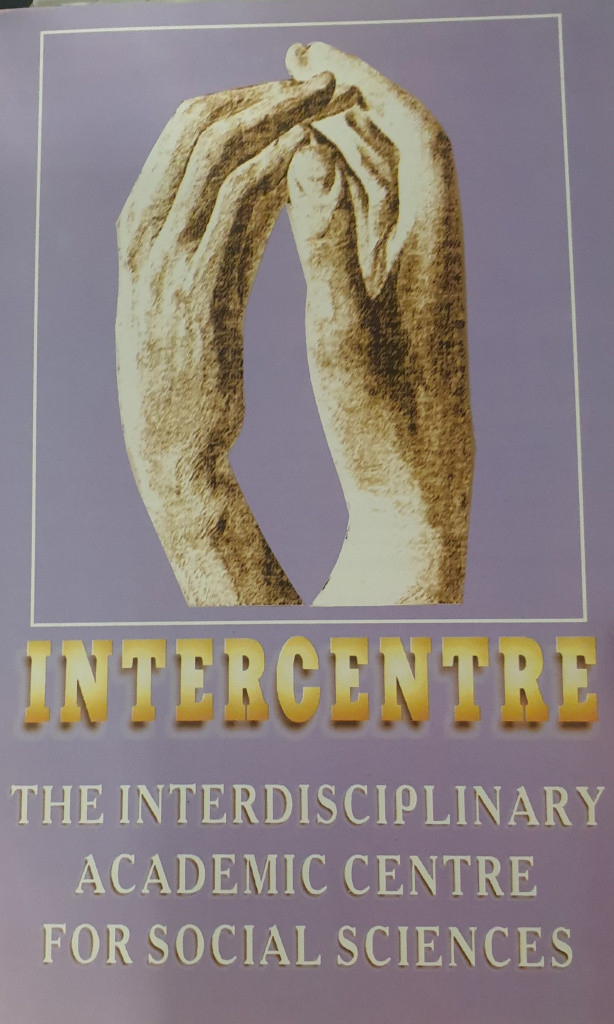
In December 1993, InterCentre organised the first international symposium “What is Russia Heading For?”, which was renamed “The Paths of Russia” in 2003. The first symposium was dedicated to the change of course that had happened prior when democratic parties lost the election to the State Duma. The symposium’s organising committee was established, which included Teodor Shanin, Tatyana Zaslavskaya, Vadim Radaev, Yuri Levada, and Mikhail Gefter. Rodin’s sculpture “Hands” became the symbol of the symposium.
Since 1994, InterCentre has been offering small individual research grants for scholars.
In 1995, Vadim Radaev becomes the executive director of the InterCentre. It is during that period that he delves into economic sociology.
Since 1994, InterCentre has been offering small individual research grants for scholars.
In 1995, Vadim Radaev becomes the executive director of the InterCentre. It is during that period that he delves into economic sociology.
1995
In the early 1990s, Teodor Shanin decides to establish several universities in Moscow: an English-Russian one, a French-Russian one, a German-Russian one, and an American-Russian one. According to Teodor, social studies were poorly represented in Russia at the time as opposed to, say, engineering or physical and mathematical sciences.And the main thing that needed to change was the teaching method. Students can’t find the time for self-education, academic studies, or their own research when all they do is listen to lectures. Teodor decided to use the practices from English universities, where students not only attend seminars but also spend a lot of time in the library. The new approach was to integrate the best Russian educational practices and Western higher education.
The Ministry of Education gave permission for one Russian-British university. However, the first attempt to create a university was unsuccessful: the Ministry of Education failed to fulfil the agreement.
But nothing is impossible for Teodor – only difficult. Just two years later, Teodor Shanin was approached by the Rector of the Academy of National Economy (now RANEPA) Abel Aganbegyan, who offered his help in creating a new university on the ANE’s territory.
In 1995, Teodor Shanin opens a Russian-British university in the southwest of Moscow and names it the Moscow School of Social and Economic Sciences. All the programmes are validated by the University of Manchester.
Upon assembling a young team of teachers, Teodor sends them to England for a six-month traineeship where they study basic principles of British academic work and learn to create new educational programmes for their faculties. Representing the Faculty of Social Work, Boris Shapiro, Alexander Solovyov, and Evgeny Morgunov attended the traineeship – they still work in Shaninka. Representing the Faculty of Sociology, Gennady Batygin, Alexander Philippov, Vadim Radaev, and Alexander Kryshtanovsky went to England as well.
The School could have opened much earlier, but if it did, the university would have existed without the library for some time, since it wasn’t ready then. Teodor refused to let that happen. So, the School opened in 1995 with the library.
Upon assembling a young team of teachers, Teodor sends them to England for a six-month traineeship where they study basic principles of British academic work and learn to create new educational programmes for their faculties. Representing the Faculty of Social Work, Boris Shapiro, Alexander Solovyov, and Evgeny Morgunov attended the traineeship – they still work in Shaninka. Representing the Faculty of Sociology, Gennady Batygin, Alexander Philippov, Vadim Radaev, and Alexander Kryshtanovsky went to England as well.
The School could have opened much earlier, but if it did, the university would have existed without the library for some time, since it wasn’t ready then. Teodor refused to let that happen. So, the School opened in 1995 with the library.
Attitude towards academic study should be at the core. The library should be treated as not just rows of books, but as a work system, where students do the work on their own using the materials we give them – there can be no library and no university without that.
An English architect Dudley Yeo designed the library in a small space of the former classroom with large windows, bookshelves along the perimeter, and places with computers, where students would prepare for classes and write their research papers. At the time, the library’s book collection was unique and one of its kind in Russia. The Liverpool School of Academic Librarians selected 20,000 books in English especially for MSSES at Teodor’s request.

Ian Bain became the library’s first director. He got it up and running in just two years and then left for Singapore. Galina Karmishenskaya became the library’s first Russian-speaking director: she moved from Saint Petersburg at Teodor Shanin’s invitation.
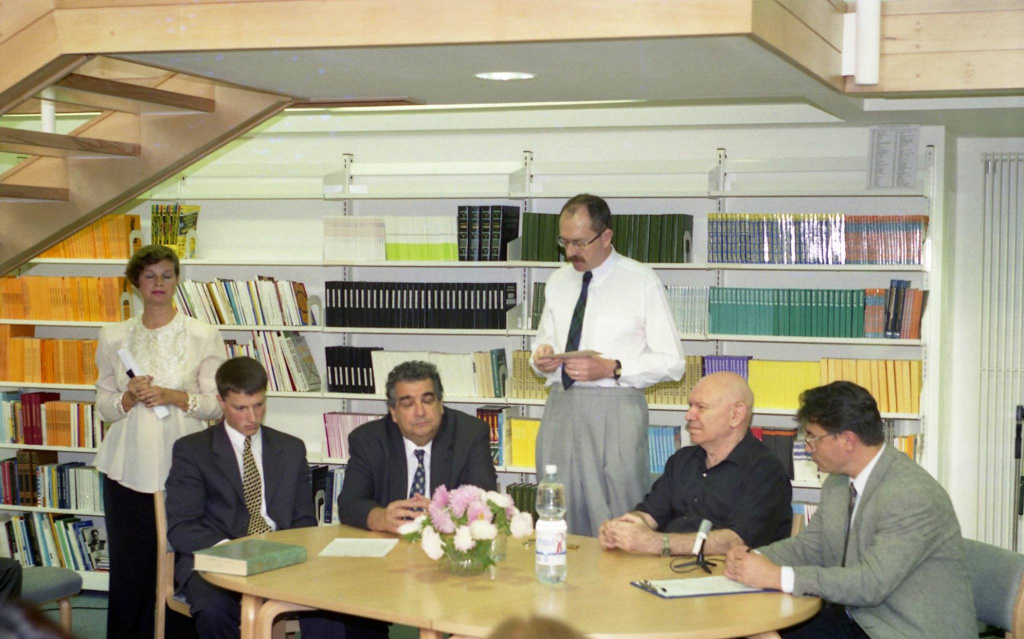
The first three faculties come into place: the Faculty of Law, the Faculty of Sociology, and the Faculty of Social Work (the first one in Russia).
The Faculty of Social Work in Shaninka was the first master’s programme in Russia to get validated by such a major university as the University of Manchester. Boris Shapiro became the dean of the faculty.
The Faculty of Law. William Butler was the dean of the Faculty of Law from 1995 to 1998. Five more people, other than Butler, were also involved in the establishment of the faculty: Igor Kiselev (courses on Labour Law), Natalya Yerpylyova (courses on International Private Law and International Banking Law), Alexander Romanov (a course on Comparative Law and Criminal Law), Maria Levina (Human Rights, Public Law).
The Faculty of Sociology. The faculty was established by Gennady Batygin, Alexander Philippov, Vadim Radaev, and Alexander Kryshtanovsky who had just got back from the traineeship in England organised for them by Teodor Shanin.
The Faculty of Social Work in Shaninka was the first master’s programme in Russia to get validated by such a major university as the University of Manchester. Boris Shapiro became the dean of the faculty.
The Faculty of Law. William Butler was the dean of the Faculty of Law from 1995 to 1998. Five more people, other than Butler, were also involved in the establishment of the faculty: Igor Kiselev (courses on Labour Law), Natalya Yerpylyova (courses on International Private Law and International Banking Law), Alexander Romanov (a course on Comparative Law and Criminal Law), Maria Levina (Human Rights, Public Law).
The Faculty of Sociology. The faculty was established by Gennady Batygin, Alexander Philippov, Vadim Radaev, and Alexander Kryshtanovsky who had just got back from the traineeship in England organised for them by Teodor Shanin.
1996
In 1996, the Faculty of Political Science was established. It had existed for 10 years. Boris Kapustin, Tatyana Vorozheykina, and Vladimir Malakhov successively held the position of dean. It was at that time that the faculty’s main tradition formed, which continues to this day: focus not on the ‘applied political science’, but on the fundamental political theory and relevant methods.The School’s library gained Internet access. All the teachers and students acquired e-mail addresses. Starting from 1996, at Gennady Batygin’s initiative, every student of Shaninka’s Faculty of Sociology would start his or her studies with the course called Library & Computer Skills. Within the next few years, the rest of the faculties adopted the course and added it to their programmes.
1998
Dmitry Dozhdev comes to Shaninka and becomes the dean of the Faculty of Law. Dmitry Dozhdev introduced the following specialisations: Labour Law, International Private Law, Civil Law, Business Law. The School was issuing LLM diplomas for three specialisations: Comparative Law, Trade Law, Business Law. William Butler continued to visit the School and teach Comparative Law almost every year.Outpacing its Russian colleagues, Shaninka’s library gets access to the first online resource – the JSTOR journal archive. Two years later, the online subscription comprised up to a dozen databases, archives, and digital libraries.
The Faculty of Cultural Management opens its doors. The establishment of the Faculty was initiated by Sergey Zuev, who would become the Rector of MSSES in 2011. Like most British universities, the University of Manchester didn’t have the Faculty of Cultural Management at the time. For that reason, Teodor had to look for an English university that could validate the programme. The University of Aberdeen became that university. When the University of Manchester introduced Cultural Management as a new specialty, MSSES chose to validate the programme there.
2001
In 2001, Shaninka introduced the new Faculty of Education Management. The faculty was headed by the Honoured Teacher of the Russian Federation, PhD in Pedagogical Sciences, and former principal of a general education school Anatoly Kasprzhak, who would become Shaninka’s Rector in 2007. The World Bank supported the faculty – it granted scholarships to students from the countries of the former USSR – Tajikistan, Kyrgyzstan, and Kazakhstan.2002
Since 2002, Shaninka has been undergoing accreditation at the University of Manchester every five years. It comprises two parts: institutional review (assessing the university’s organisational and financial state) and periodic review (assessing the quality of the educational process). Each faculty has an academic advisor who monitors our activity.There was one funny moment. I think it was 2007. They were very dissatisfied by the fact that we had a lot of graduates who had received diplomas with distinction, since only 3-5% of their students usually received a diploma with distinction. And we had almost 70%. So, they checked the quality of our work. Teodor would later tell us: “They realised that our quality of education is indeed higher than theirs”.
Shaninka establishes the Faculty of Practical Psychology. It originated from the Psychosocial Counselling specialisation that was developing at the Faculty of Social Work. Evgeny Morgunov became the dean of the faculty. The Faculty of Practical Psychology launched two specialisations: Organisational psychology and personnel management and Individual and family psychological counselling.
Since 2002, Shaninka has been hosting the international scientific conference for young academics called “Vectors of development for Modern Russia”. Undergraduate and graduate students from all over Russia participate in the conference. The conference is initiated and organised by MSSES students. They announce the theme of the conference, its panels, and round tables as well as invite leading academics to hold workshops, select speakers, examine the texts, and release a collection of essays written by the participants.
In 2002, Teodor Shanin received the Order of the British Empire for “service to education in Russia”.
It is the heyday of the Faculty of Social Sciences (at the time, it was called the Faculty of Sociology), which was originally meant to be a research department. Vadim Radaev is the editor-in-chief of the Journal of Economic Sociology, Alexander Philippov is the editor of the Russian Sociological Review, Gennady Batygin used to be the editor of the Sociological Journal. Those are the three key sociological journals.
Since 2002, Shaninka has been hosting the international scientific conference for young academics called “Vectors of development for Modern Russia”. Undergraduate and graduate students from all over Russia participate in the conference. The conference is initiated and organised by MSSES students. They announce the theme of the conference, its panels, and round tables as well as invite leading academics to hold workshops, select speakers, examine the texts, and release a collection of essays written by the participants.
In 2002, Teodor Shanin received the Order of the British Empire for “service to education in Russia”.
It is the heyday of the Faculty of Social Sciences (at the time, it was called the Faculty of Sociology), which was originally meant to be a research department. Vadim Radaev is the editor-in-chief of the Journal of Economic Sociology, Alexander Philippov is the editor of the Russian Sociological Review, Gennady Batygin used to be the editor of the Sociological Journal. Those are the three key sociological journals.
2004
The Faculty of Social Work was liquidated due to the fact that highly qualified graduates had trouble finding a job: back then, Russia didn’t have a well-established system of social work that would have a demand for our graduates.In 2004, the Tendencies of Education Development conference was held for the first time. It focused on management issues. Since then, the conference has become an annual event and a platform for discussing topical issues of education development at the regional, national, and international levels. Every year, the scientific conference brings together over 500 participants from the majority of Russian regions as well as neighbouring and distant foreign countries.
Dmitry Rogozin becomes the dean of the Faculty of Sociology (which would turn into the Faculty of Sociology and Political Science in two years and become known as the Faculty of Social Sciences in 2011).
2006
In 2006, Shaninka’s Faculty of Political Science was liquidated. The revival of the faculty began only in 2010 when Vasily Zharkov joined Shaninka.2007
The position of Shaninka’s Rector is granted to Anatoly Kasprzhak who had headed the Faculty of Education Management since 2001. Teodor Shanin becomes the President of the Moscow School of Social and Economic Sciences.2008
In 2008, Viktor Vakhshtayn becomes the dean of the Faculty of Social Sciences. He had to practically rebuild the faculty from scratch. He got help from the graduates who later became faculty teachers.2009
In 2009, the Faculty of Social and Cultural Project Management together with the Mikhail Prokhorov Foundation launched a scholarship programme for workers in the cultural sector from the Ural, Siberian, and Far Eastern Federal Districts as well as Moscow and Moscow region. The programme allows the grantees to take on Shaninka’s professional retraining and British graduate programme.2011
The position of Shaninka’s Rector is assigned to Sergey Zuev, who initiated the establishment of the Faculty of Cultural Management in Shaninka in 1999.2012
In 2012, Vasily Zharkov launches the Political Science and International Relations programme. The programme teaches students to better understand contemporary international relations from the perspective of relevant political theory. Main subject – Theory of International Relations.Since 2012, the Faculty of Social Sciences has been holding autumn field schools for students. Those schools have become part of the faculty’s education process.
The School undergoes a rebranding and gets a new logo. The name ‘Shaninka’ becomes part of the logo and the School’s identity.
2013
Shaninka launches several new programmes:- The Historical Knowledge in Modern Society programme focuses on the relevant academic discipline Public History. Andrey Zorin, the Oxford University Professor, was appointed the programme’s Academic Supervisor.
- The Media Management programme was developed in collaboration with RANEPA. It became Shaninka’s first programme dedicated to media studies and management practices in the media field.
- The Urban Studies programme focuses on studying and creating concepts and strategies for territorial development as well as regional and urban master planning.
Since 2013, Shaninka has hosted the annual Glazychev Readings – a conference commemorating the renowned Russian academic, public figure, urbanist, and Russian cities researcher, who has dedicated his life to studying the functional problems of social systems, city communities, and urban environment.
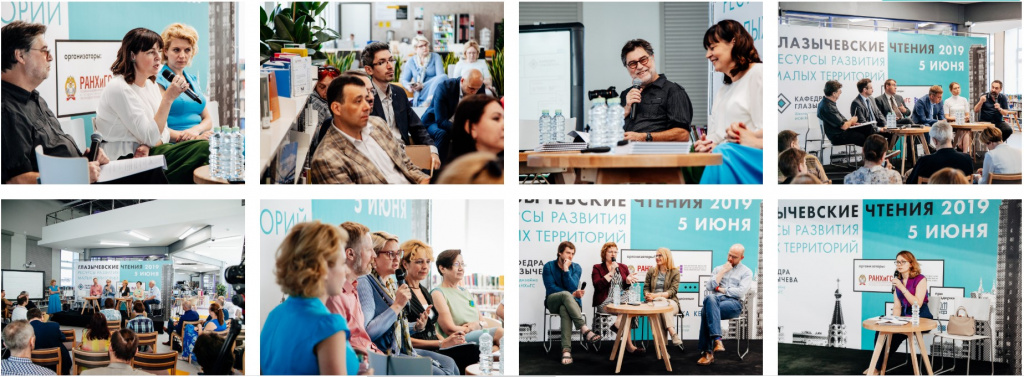
2014
In 2014, Shaninka launched its first undergraduate programmes. From then on, young people could apply to Shaninka right after their school graduation. Creative Project Management and Global Politics were the School’s first two undergraduate programmes.In 2014, the first students were enrolled in the graduate programme on political philosophy developed by Tatiana Vaizer and Grigory Yudin.
2015
Shaninka’s Faculty of Social and Cultural Project Management started the admission process for the Fashion Studies programme (Fashion Industry: Theory and Practice). The programme explores fashion as a semiotic code that connects clothes, body, and culture. The programme was developed and is headed by Lyudmila Alyabyeva, the editor-in-chief of the Fashion Theory journal.2017
MSSES launched two new undergraduate programmes: Contemporary Social Theory and Psychological Counselling and Coaching. Both programmes were developed and implemented in collaboration with RANEPA’s Institute for Social Sciences.In 2017, Shaninka established the Faculty of Political Science. The faculty brought together people of different generations with their unique experiences and worldviews. Professor Vladimir Malakhov, who previously worked in the old faculty, continue to work in its new iteration. However, the new team mostly comprises the next generation represented by Shaninka alumni, such as Artur Vafin, Stanislav Kozheurov, Mark Simon, and Grigory Yudin. The faculty’s staff includes a Harvard graduate Nabi Abdullaev and a renowned specialist in history philosophy Andrey Oleynikov who has headed the Faculty Department of Political and Legal Studies since 2018.
In 2017, Shaninka started the admission process for two new programmes: a graduate programme History of the Soviet Civilisation – the first Russian historical graduate programme that is focused entirely on studying the history of the Soviet experience. The programme concentrates on studying the USSR experience both in local and global historical contexts. The second is the graduate programme Behavioural Economics. It’s a partnership programme implemented by the MSSES’ Faculty of Practical Psychology in collaboration with RANEPA. Behavioural economics analyses and predicts strategies for decision-making and consumer behaviour. It originated at the crossing point of economics and psychology and it has become one of the fastest-growing fields of fundamental and applied science in Europe and America.
2018
Rosobrnadzor revokes Shaninka’s accreditation. A large community of graduates, teachers, academics, and public figures forms around the School to publicly support it. A meeting is held in InLiberty: it brings together over 400 concerned graduates, students, and teachers.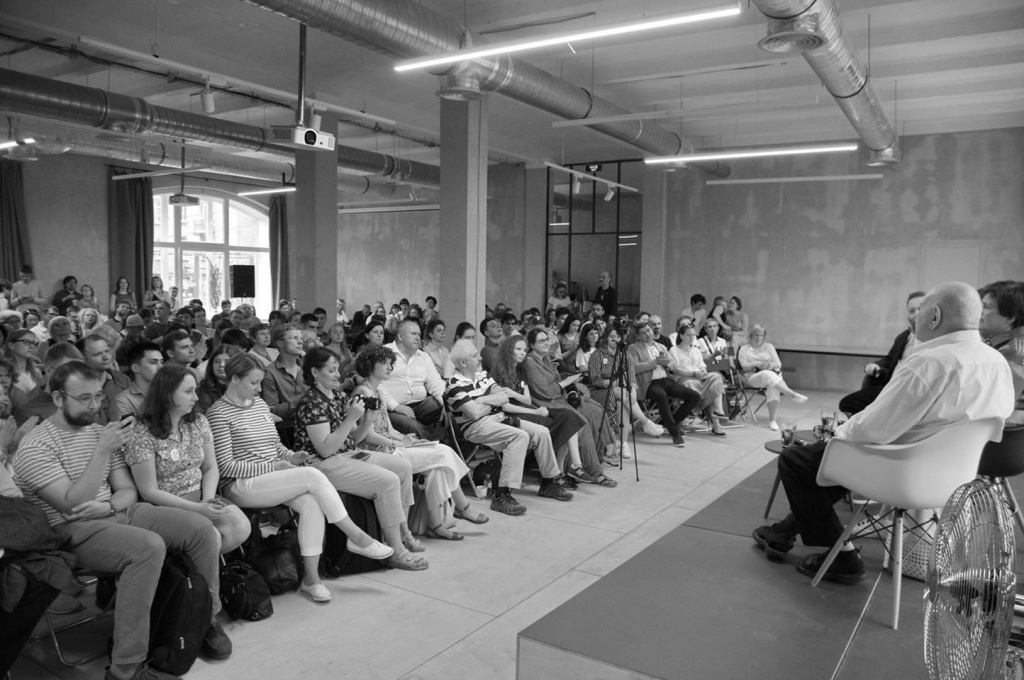
Everything that has happened showed us that the School is important not only to itself but also to a very wide range of people and organisations which were more than kind and felt personally affected by what was happening to us. To even our surprise, the number of those people and organisations turned out to be higher than what we could’ve imagined or hoped for. It means that we live in a very good world, good educational and human environment that itself acts as a constant expert examination of our projects and our programmes. Those people, our friends and partners, weren’t just showing compassion, they were providing actual help.
Since 2018, Shaninka has been holding competitions for the best master’s theses. The independent commission assesses the papers and grants monetary awards for the best research.
2019
In 2019, Shaninka finally acquired its own home and moved to Gazetny Lane. Our new home has classrooms, an open-source library, a co-working space, and administrative buildings. In 2019, all the facilities were licensed and they are now open for classes attended by undergraduate and graduate students.In 2019, an agreement was signed with the University of Turin (Italy) to implement a double-degree PhD programme in Law.
In 2019, Coventry University became Shaninka’s strategic partner. It enrolled the first 25 students from Shaninka. In 2021, they will receive not only a bachelor’s degree from MSSES but also a British diploma from Coventry University.
2020
On the 4th of February, the School’s founder and President Teodor Shanin passed away.On the 3rd of March, all the educational programmes of the Moscow School of Social and Economic Sciences earned a favourable review from the accreditation expert panel. Rosobrnadzor acknowledged that the content and quality of the education in MSSES complied with the Federal State Educational Standards.
2021
In 2021, Shaninka established the Faculty of Liberal Arts and Sciences and launched new undergraduate programmes, Fashion Industry Management and European Private Law Tradition.On the 5th of April, Shaninka became the co-founder of the New University League. The association was established by the Moscow School of Social and Economic Sciences, the European University at Saint Petersburg, New Economic School, and the Skolkovo Institute of Science and Technology.
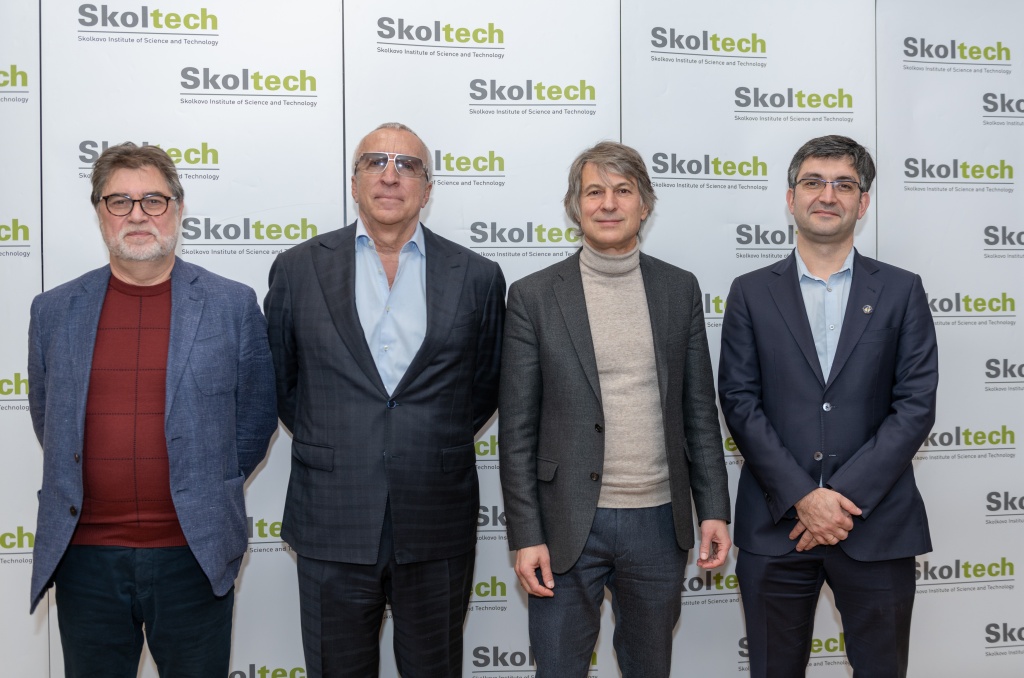
We are united by the very ideas of development coming from the depths of the common European culture and European notions of what should be. We live at a time when the ideas of development, justice, and freedom are being reinvented. And the ideas of what freedom is, including the academic freedom as well as human and institutional development that is closely related to it, – that is the underlying value platform for our association.

